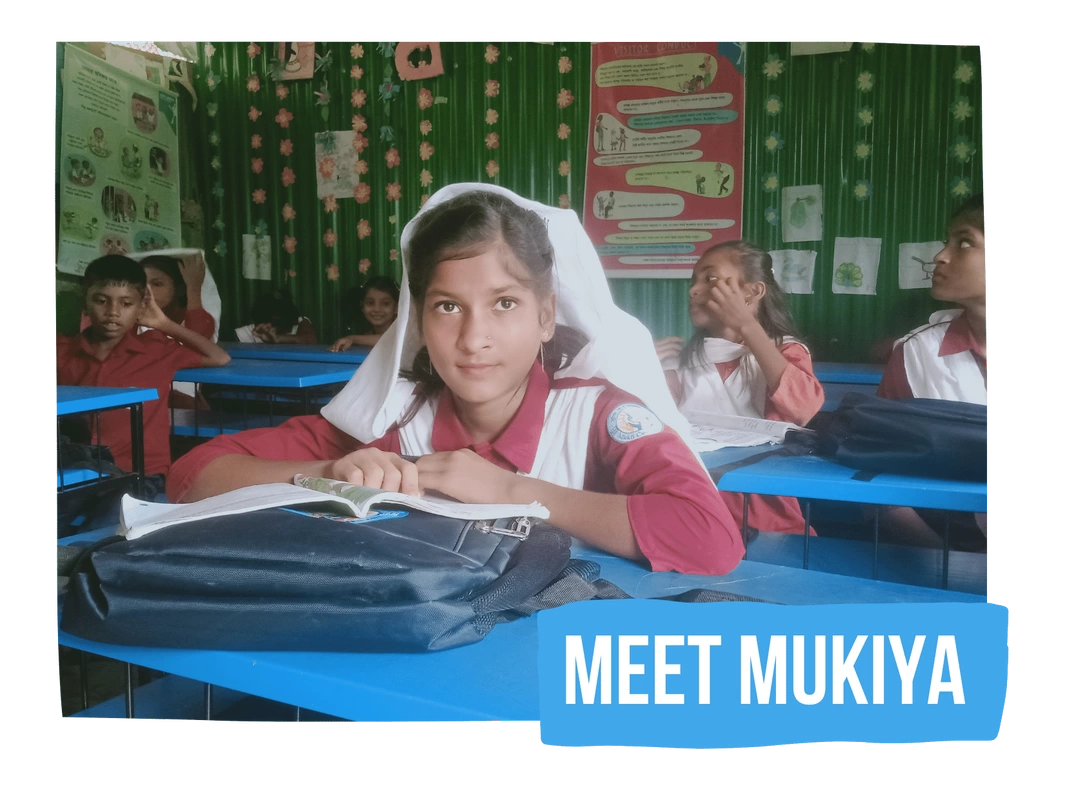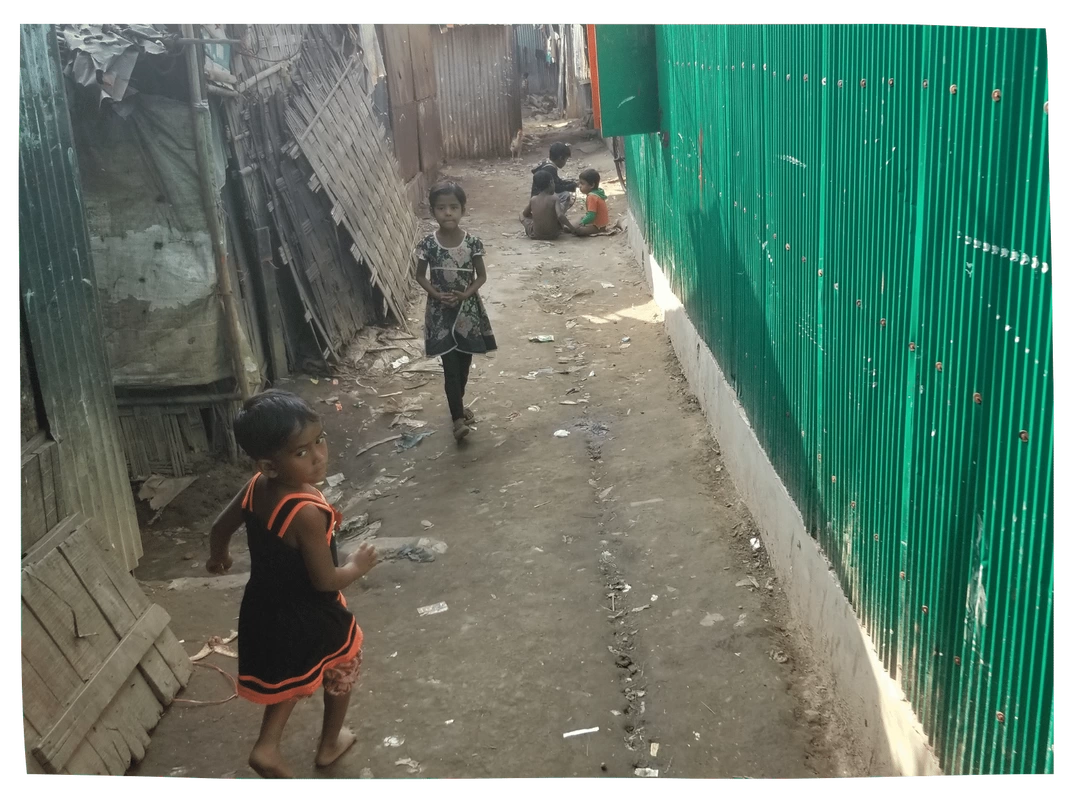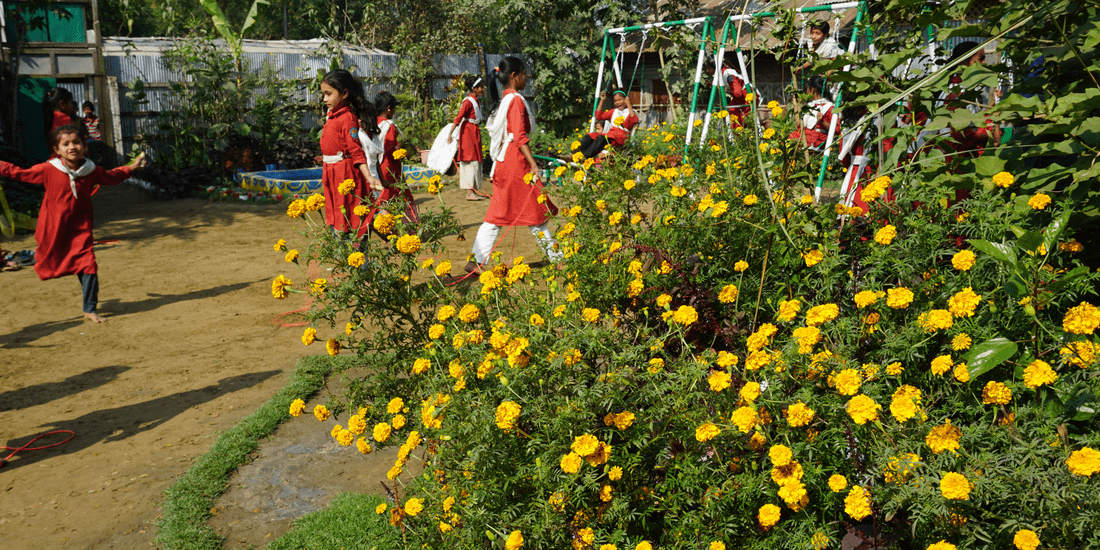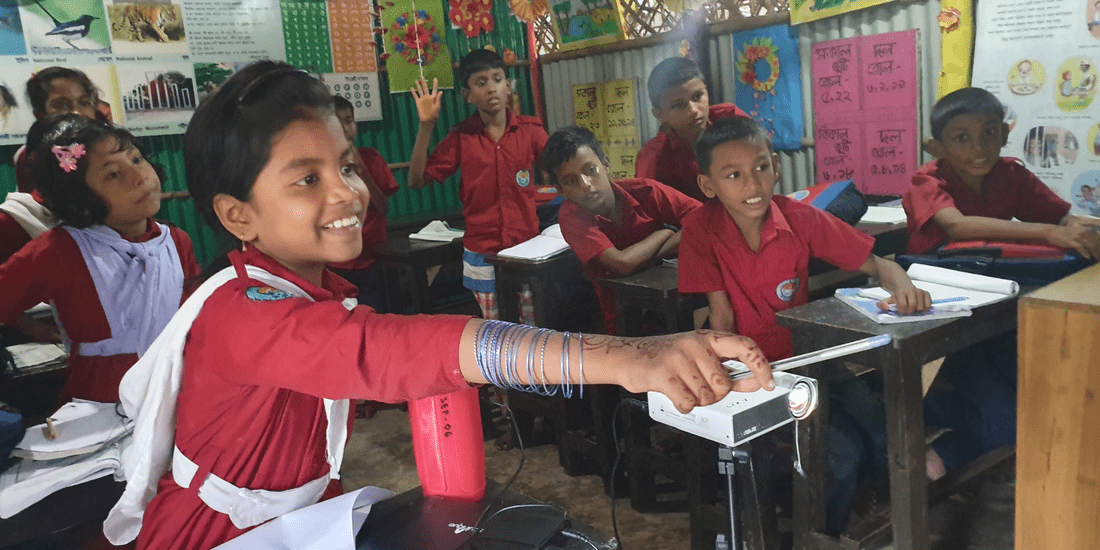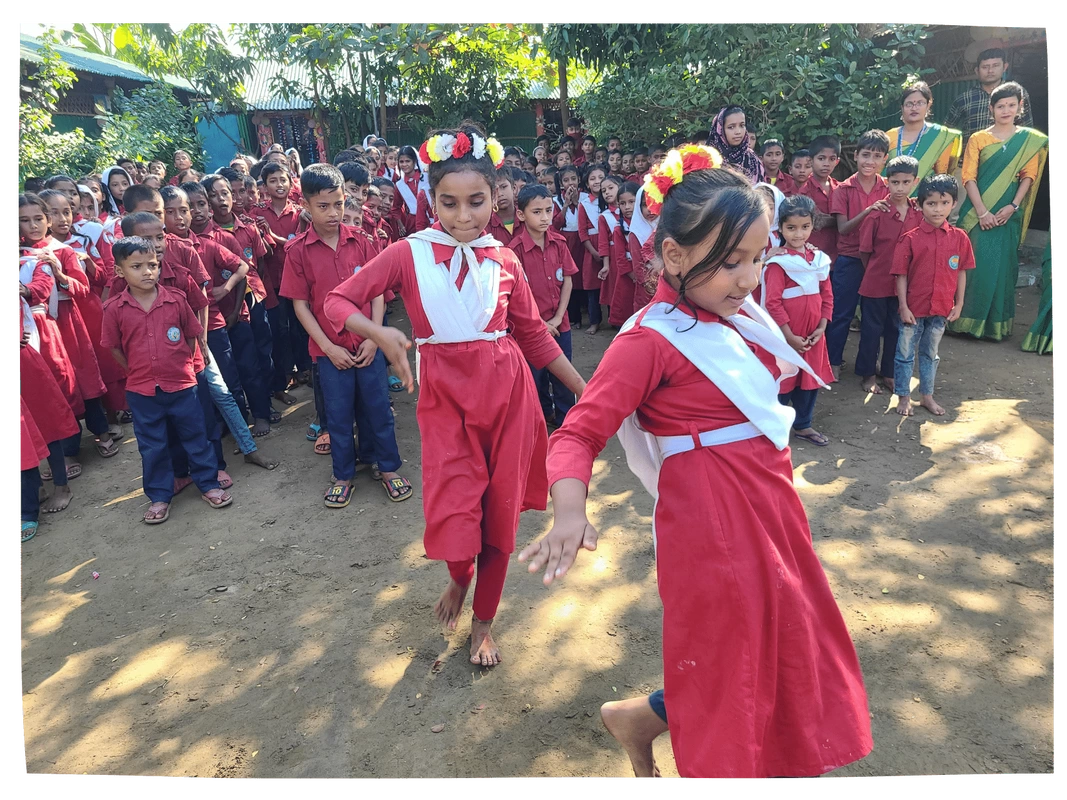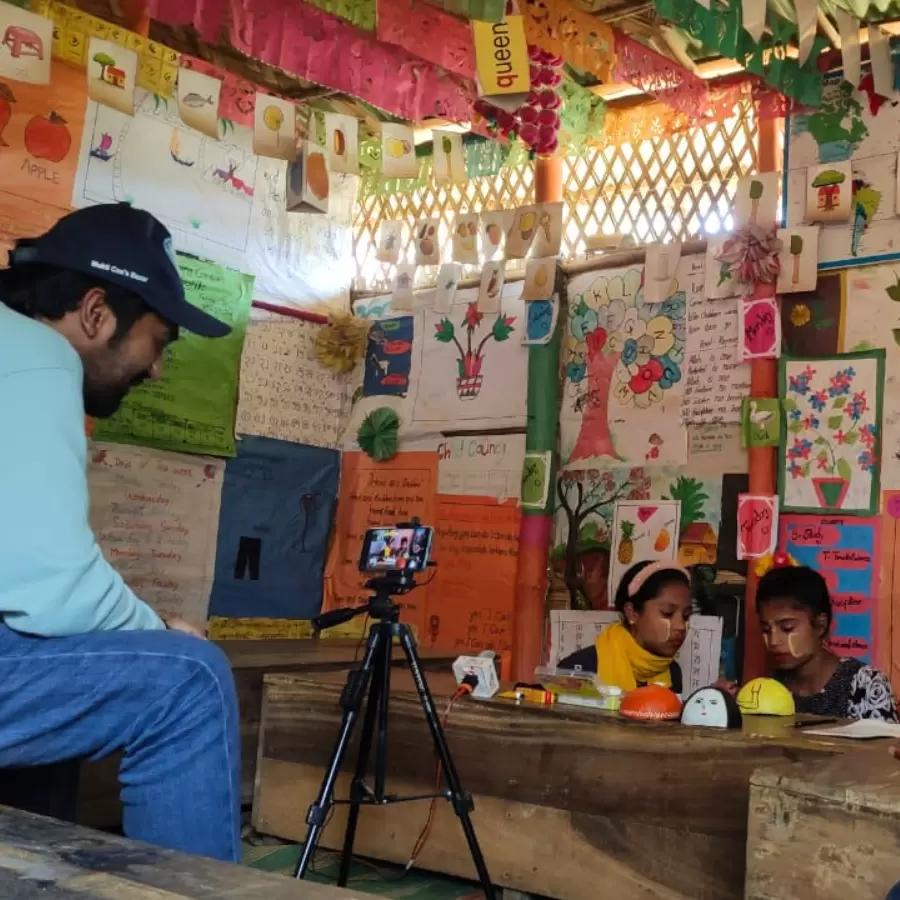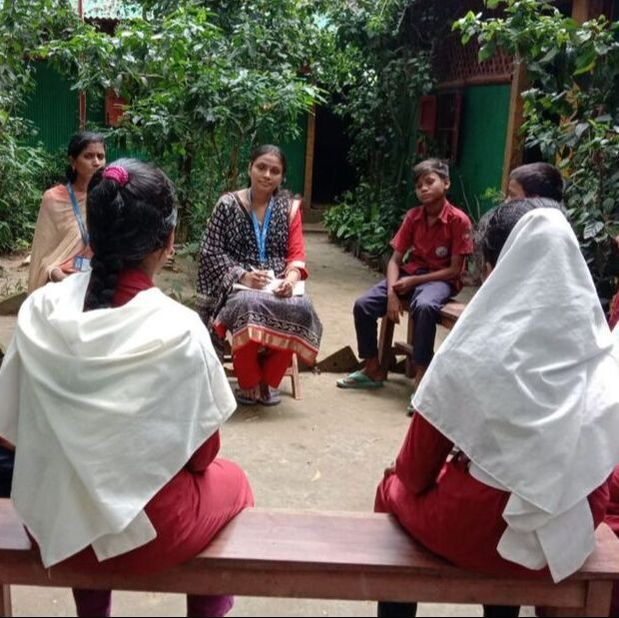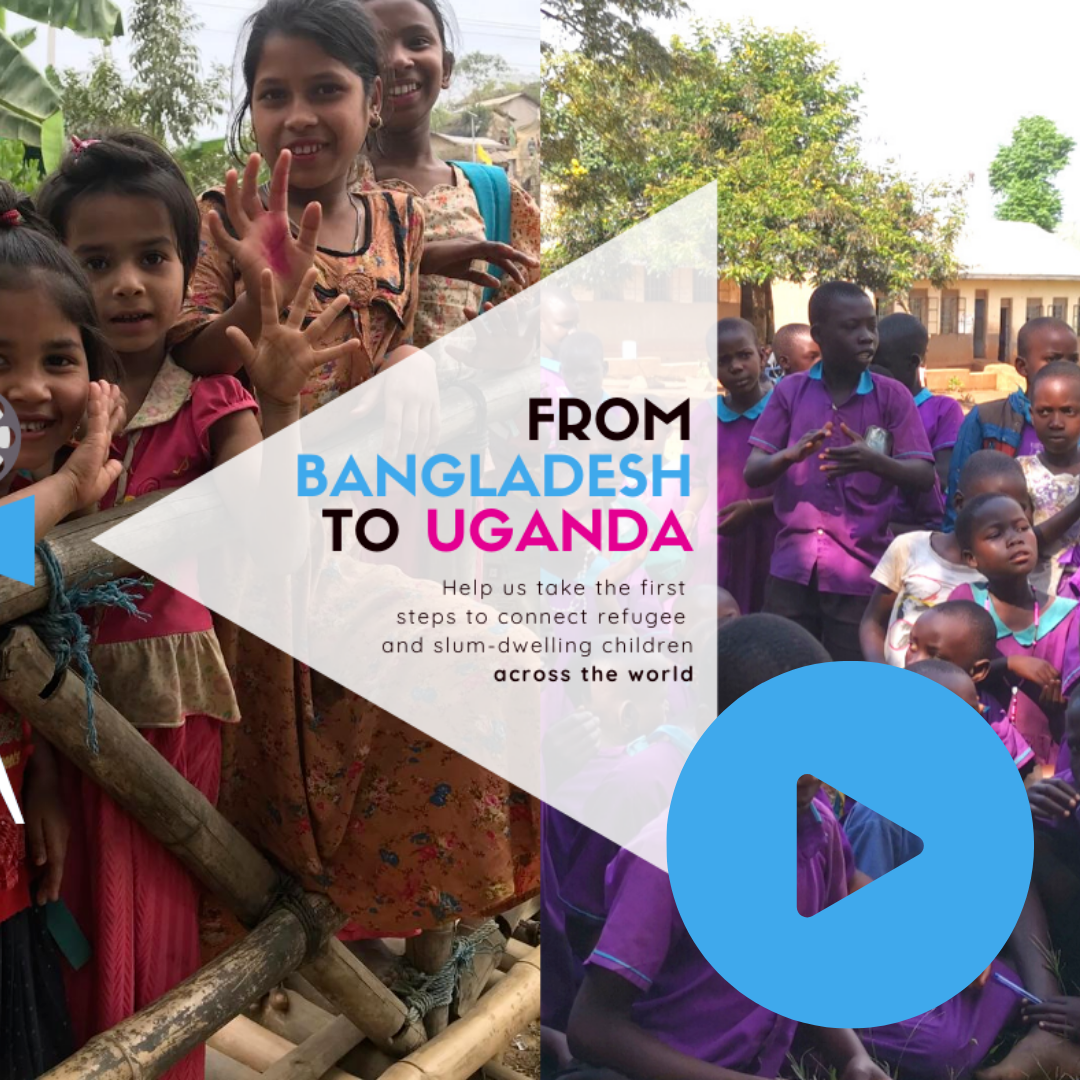In the slums of Cox's Bazar, Bangladesh, extreme poverty forces thousands of children to work to support their families. As a result, they face financial and practical barriers to attending school.
In the Doharazi Enclaves, Rohingya refugees from Myanmar who have moved away from the larger crowded camps are cut off from education and basic services.
Children on the Edge offer education for 1,700 children in Cox's Bazar and the Doharazi Enclaves through 34 Community Schools. Flexible classes allow access to quality learning, creativity and play for those who face practical and financial barriers to attending school.
|
MUKIYA attends one of our community schools in Cox's Bazar and is very happy there. She really enjoys the extra-curricular activities and loves to sing, draw and dance. She says that the school has a positive impact on her life and she is so pleased to be learning new things. Mukiya has learnt to add, subract and multiply, which helps her to calculate money when she is working. She told us: "I can attend school in the morning or afternoon and work in the other so that I can go and sell wood to help support my family’s income.” |
WORKING ON 'THE EDGE' IN BANGLADESH
|
WHAT WE DO TO HELP
Working with our partner organisation, Mukti Cox’s Bazar, we offer flexible education and support for slum dwelling children in Cox's Bazar and Doharazi Enclave communities, who cannot access mainstream education. 34 Community Schools (24 in Cox’s Bazar and 10 in the Doharazi Enclaves) enable 1,700 children to benefit from a quality curriculum, taught in colourful classrooms, with a focus on rights and creativity.
Over a hundred children each year progress to Grade 5, take national exams and are awarded with Primary Education Certificates, enabling them to progress in mainstream education. A day a week is set aside for play, self expression and the care of beautiful gardens that surround each centre. Importantly, classes are flexibly timed to enable access for working children.
Teachers are trained from within the community, so children are taught by trusted, familiar adults who understand their situation.
Over a hundred children each year progress to Grade 5, take national exams and are awarded with Primary Education Certificates, enabling them to progress in mainstream education. A day a week is set aside for play, self expression and the care of beautiful gardens that surround each centre. Importantly, classes are flexibly timed to enable access for working children.
Teachers are trained from within the community, so children are taught by trusted, familiar adults who understand their situation.
Daily digital lessons bring learning alive and the creation of ‘Moja Kids’ - an online platform where the children record video newsletters and share them back and forth with Rohingya children in the Kutupalong camp - has been an exciting addition.
In 2020’s AbilityNet Tech4Good awards, our digital education programme was chosen for the Lenovo Education Award, recognising outstanding digital achievement in education.
Children participate in Child Councils within the schools. These provide a space where children can give their opinions and suggestions about how the programme is being run, talk about issues that are affecting them, learn about their rights and communicate them to their friends and families.
The Community Schools are enthusiastically supported by local communities and government officials. Their development over ten years has led to the creation of a best practice model, which is used to maintain standards in our work with Rohingya refugee children.
YOU CAN MAKE A DIFFERENCE.Help more children like Mukiya to go to school and learn, while still supporting their families.
By donating, you'll directly support our classrooms, which bring joy to children living in some of the toughest situations. |
As a small charity, with a big reach we are grateful for every penny we receive, and are committed to spending your donation where the need is greatest. For every pound spent by Children on the Edge, 89p goes directly to our international programmes.
YOU MIGHT LIKE
|
READ ABOUT OUR AWARD WINNING DIGITAL EDUCATION MODEL IN BANGLADESH
|
|

